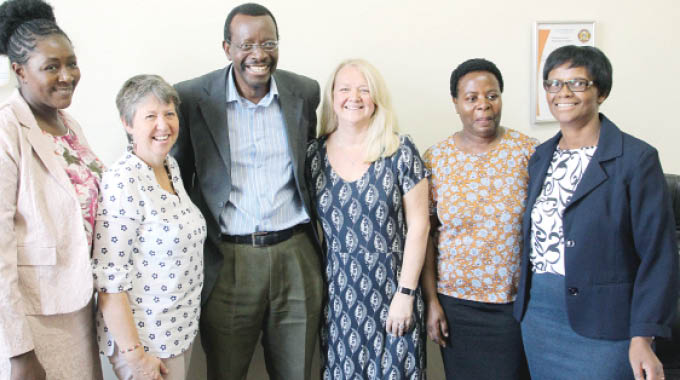Clinic to tackle stillbirths opens . . . First of its kind in Sub-Sahara

Andile Tshuma, Chronicle Reporter
THE first stillbirth prevention clinic in Sub-Saharan Africa to address high numbers of stillbirths in the country has opened at Mpilo Central Hospital and a number of women have already been registered.
Mpilo is working on the project in conjunction with the United Kingdom’s University of Manchester and the Lugina Africa Midwives Research Network (LAMRN), a continental body involved in maternal and midwifery research.
The hospital established the special clinic for pregnant women to improve maternal health service delivery and reduce the high numbers of stillbirths at the hospital.
The institution records about 300 stillbirths annually.
“We have set up this specialised clinic for women who have lost babies before and we are encouraging women to visit this clinic as we need to save a lot of lives. As a hospital we are happy that it has come to us and it will serve the region. This will mean that more people are likely to be born alive. We want women to go home with their babies because we understand the pain that a mother goes through when she has to go back home empty-handed,” said Mpilo Central Hospital clinical director, Dr Solwayo Ngwenya.
When The Chronicle visited the hospital yesterday, some expectant mothers were being attended to by nurses who were doing the registration process. They expressed their excitement and hope about the programme.
“There is still a lot of work to be done in terms of the logistics but the work already done shows that indeed it will assist people and the response from the community and from expectant mothers has been good as they are keen to know what is on offer and the kind of help that they can get. We are still setting up and carrying out a lot of registration, and are already helping some people in the programme, although I cannot immediately give the figures at this moment,” he said.
“We are looking forward to reaching out to every woman relevant in this program in a bid to reduce still births whose rate is still high. At Mpilo, 30 out of 1 000 pregnancies result in still births and per year we deliver about 10 000 babies in our maternity ward,” said Dr Ngwenya.
He said stillbirths can be caused by hypertension, diabetes in pregnancy, infections like syphilis, congenital abnormalities in the baby and sometimes causes can be unknown.
“Our main worry is that studies both locally and internationally have proven that women with a history of stillbirth have a 20 times risk of having another one in their lifetime. This clinic will also cater for such women with a history of stillbirths and we will achieve all this using locally available resources,” added Dr Ngwenya.
Globally 2,6 million stillbirths are recorded annually according to the World Health Organisation.
Professor Dame Tina Lavender of the University of Manchester, who is leading the team of medical experts that trained Mpilo Central hospital staff for the programme, in an interview with The Chronicle recently said the clinic was a pilot project meant to prevent stillbirths in the country.
She said the project was part of a feasibility study they were working on which will be taken to other countries if successful.
“We have identified areas where we can have an impact. In Zimbabwe we found that 80 percent of women who have had one previous stillbirth or more are more likely to have another stillbirth so we realised that we need to screen those women more and to give them more support during their pregnancies to ensure that they and their babies are safe throughout the pregnancies,” she said. — @andile_tshuma.












Comments